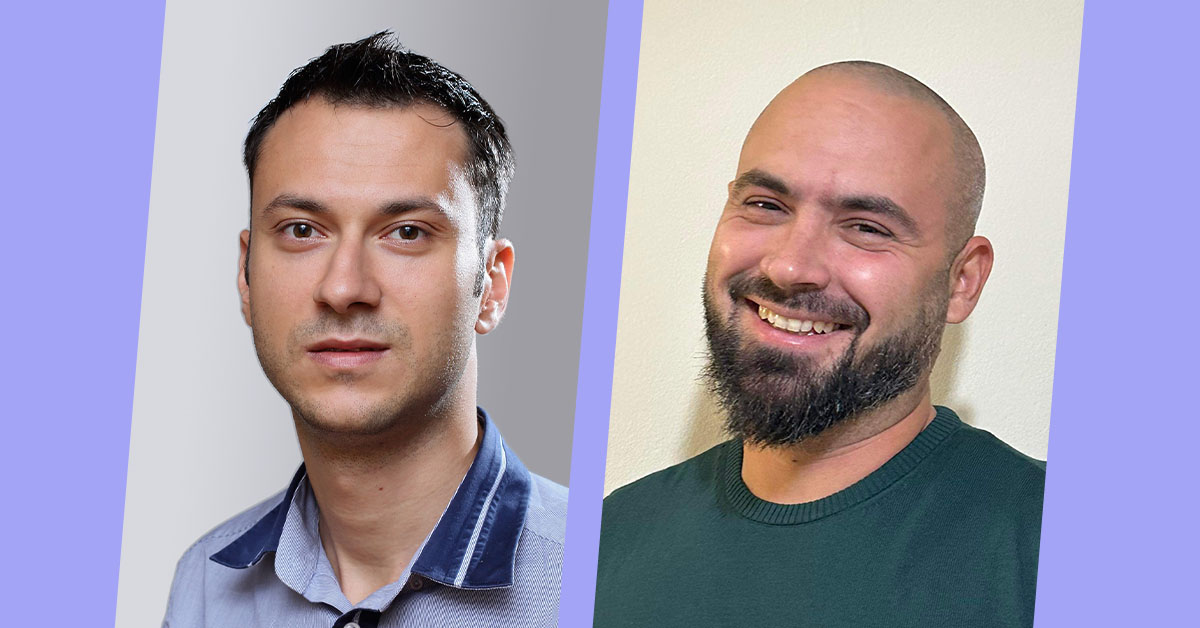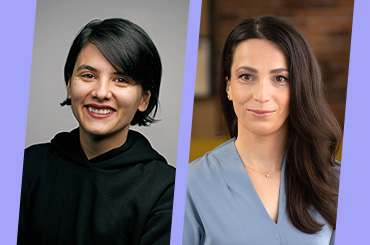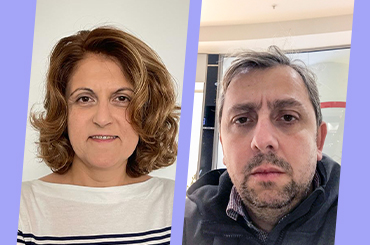"Once a QA, always a QA!" passionately declared Dimo Mitev, QA Architect at Progress and one of the leading trainers in
Telerik Academy Alpha QA, and continued:
"When I go out, I would immediately see at least 10 things that bug me. Here's a pothole, there's a street lamp not working, and so on and so on. You could be a great QA Engineer if you are the same way. You'll do something similar but for software."
"It's a fun profession, and the better you get, the more fun it becomes," shared Miroslav Hristev, Automation Team Lead at DraftKings and the second lead trainer in Alpha QA. "For me, QA is not merely a job; it's a way of thinking. I aim to improve not only the software but everything around me."

In the world of QA engineering, where interesting challenges never cease and growth is a constant companion, it's a fulfilling career path for those who seek an ever-evolving professional journey.
It is a great entry point to the IT sector, especially with our 6-month evening
Alpha QA program. Apply by February 25.
Now, to help you decide, we talked to Dimo and Miro, who shared great insights about the profession, why it's suitable for everyone no matter the background and why you should definitely give it a go : )
Hi, Dimo and Miro. We are thrilled to have you both as lead trainers of Alpha QA! Let's start with a short introduction.
Dimo: Hi, it's great having me! Well, I primarily work in QA, starting in the distant year of 2005. My main focus is on testing, all kinds of testing - as you will come to understand, testing is divided into many types - manual, automated, load testing, and security testing - things we will learn in the program : )
Through the years, I've had the opportunity to work in different companies - Bulgarian, American, German, and so on. And engage in testing different types of software and platforms. It will be an honor to share everything I've learned over these years with all learners in Alpha QA, along with my colleague Miro.
I've also been a QA trainer since 2011. Interestingly, my first teaching experience was at Telerik Academy when the QA training was established in 2011. However, I have had the opportunity to teach at various companies, universities, and academies and lead different types of testing.
Miro: Hi all! I have over 10 years of experience as a QA Automation Engineer. I've gone through many positions and companies to reach my current position - a QA Automation Team Lead at DraftKings. My teams mainly focus on automation QA, integrating or optimizing these processes within our company.
Additionally, I lead a course on automated testing at the University of Plovdiv. We also have internal academies within the company, where I have participated and developed the QA program.
A wealth of experience awaits our students! Let's take a brief journey back in time - what led you to choose a career as a QA engineer?
D: I started in 2005, and at that time, there weren't many academies, and computers weren't as prevalent as today. It was challenging to learn. I studied computer science, but truth be told, the specific education matters little. Indeed, a technical education can be a plus. Still, even if you graduated in accounting or architecture, it doesn't matter - the Alpha QA is structured in a way that provides you with all the prerequisites. We will assist you in the career challenge you're embarking on.
But let's get back to what attracted me... I decided to give it a try! My roommate at the time, who was and still is a very good friend of mine, started as a QA. He told me about it. I found it interesting and decided to give it a try.
I tried, and it's been my profession for almost 20 years. It's a very, very interesting profession, highly valued and sought after, with many nuances that we will learn together. I don't regret my career choice because it's truly a profession where you can achieve great things.
M: I have a similar story :) When I started, there were more computers and more… computer games! I couldn't afford to buy or pay a monthly subscription, so I started applying to the Alpha and Beta testing programs. At that time, I didn't even know there was such a profession as a QA.
The testing programs were my access to the games - I played and provided feedback on what I discovered - issues, things that could be better, etc.
A friend told me about this QA profession, and I became intrigued. Breaking someone else's software seemed interesting, but a QA expert's diversity and daily challenges appeared compelling.
Sometimes, coming up with a suitable test for software takes a lot of work. An example is one of the most challenging tests I conducted in a company dealing with network management. I had to simulate the disappearance of an in-house router!
That's what attracted me to the profession - the different technology and the constant dynamics. It makes me happy so many years later!
You said it's a dynamic and exciting profession. Dimo, can you share the responsibilities of the QA engineer?
D: Like any other thing, if we take even the construction of a building, some people do the architecture, builders, those who check if everything is precisely how it should be. Similarly, in software development, different experts work in a team - developers, QA engineers, business analysts, DevOps personnel, project managers, product managers, etc. QAs have become an integral part of software development. They work with the entire team that creates the software.
Responsibilities? The first one is that we usually create software based on requirements (business requirements, software requirements, and so on). They can come from the client or the company, and the first and primary task is to cover these requirements. The main thing is to see if our developer colleagues have developed what is described as requirements.
Another responsibility is to log problems. There will always be issues; we can't escape them.
Our profession uses an infinite resource: human errors. Our task is to minimize them to a minimum to prevent someone from encountering them, logging bugs and defects and writing tests executed manually or automatically. These are the so-called test scenarios.
M: Automating the testing scenarios is important because this leads to a reduction in human errors. The trend is that more and more QA professionals undergo training to make them more versatile, enrich their knowledge, and meet the company's needs to automate as much as possible.
The good news is that
Alpha QA will make you Automation QA engineers : )
What are the perspectives of QA engineers, especially compared to developers? Is it true that becoming a QA is more accessible than a developer?
D: These are the professions of the future. Software is everywhere - in cars, TVs, phones, vacuum cleaners... And this software will not disappear - quite the opposite, it will become more and more prevalent. Today, you can do everything with software. Therefore, software quality is of utmost importance, and thus the QA engineers.
Just imagine, if you go to a store, you can get a phone for BGN 100 or one for BGN 1000. And with both phones, you can do the same things - make calls, send messages, use the internet. So, why is there such a difference? Because we assume that the more expensive one is of higher quality.
Quality costs money.
Is it easy to become a QA? Or is it difficult? Becoming an IT specialist is relatively easy, but being a great QA or developer is challenging.
You have to sit down and learn. If you think you have entered the Academy, and that's it, it's not.
We will give a lot, everything you need, but you also have to give from yourself. For those with the desire and motivation, things will definitely work out. I've taught numerous students and can share many stories of people from different professions and ages. Don't let that worry you - nothing is impossible.
Telerik Academy has a fantastic program, so you have all the prerequisites to start working as long as you approach it seriously and give maximum effort.
Dimo said that people from different backgrounds can become QA engineers, but what are you looking for when hiring junior QA engineers?
M: Eye for detail is one thing, but for me, there's one more crucial thing I look for during interviews - people's soft skills! After all, we (QA engineers) are the ones who determine whether a particular component works correctly or not, and we need to know how to present this information. To do that, we need to have a broad spectrum of technical and business knowledge, meaning understanding the product and the specifics of its use.
As for the technical aspect, it's not necessary to have completed a technical university - programs like Alpha QA will do that for you. However, the most important thing is that people have the desire. I've seen individuals with little experience but tremendous enthusiasm that compensates for it.
Nevertheless, you should strive to have at least one programming language to be a successful QA. You need to know what continuous integration, delivery, etc., look like.
Well, it's a good thing that Soft Skills sessions are about 20% of the Alpha QA program! One last question - what else can you share about the profession that our readers must know?
D: This profession will become increasingly sought after as people use more software, and allowing errors is unacceptable.
For example, if you open Facebook and cannot register – it's a problem but not so critical. In some cases, the error could be life-threatening. Take, for instance, software used in planes, cars, trains, and ships. Can you imagine pressing a button, and the boat doesn't respond and crashes into the dock?
You see, software must meet standards so that people can use it seamlessly.
Secondly, this is a well-paid profession, which is important to consider. Skilled IT professionals are well compensated - you will receive an excellent salary when you grow.
You also have many career opportunities; depending on the career ladder in a given company, you continue to grow. Like any IT profession, QA has two technical and managerial directions. In one case, you think about your automation solution's architecture; in the other, you deal more with people management.
It's true that there are endless possibilities in IT and the QA profession.
Ready to take full advantage of these possibilities? Apply to
Alpha QA and jumpstart your IT career!







